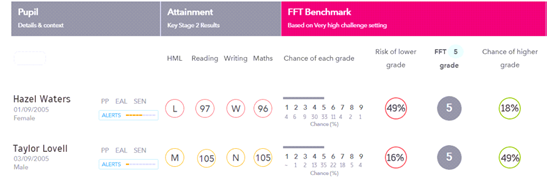Education in a Time of Social and Technological Change - blog 1
Hi there. This blog is the first in a series, in which I am planning to explore the relationship between education and technology with particular consideration for the way in which I use technology as an educator.
It might be helpful to begin these musings by thinking about my historic relationships with technology and the consequences of these historic relationships for my current knowledges. My hope is that demystifying my positionality (hooks, 1994) to technology will be equally helpful for you - the reader - and me - the writer - because it will help to establish some explanation for the ideas I put forward.
I am a millennial, which means I can remember life before the internet as well as the day the internet was installed in our house, but am also someone who grew up using the internet on a daily basis. Therefore my life experiences straddle the technological revolutions of the 1990s-2000s. Technology certainly had a transformative effect on my childhood interactions with the world. Technology made me more independent (particularly once I got my first mobile phone, aged 15) and gave me access to knowledge beyond that which I could glean from my formal education or the non-fiction books we had at home. As a child, technology was also something that felt more malleable and democratised than it does to me today. When an old computer was being thrown out at work, my dad would bring it home and we would strip it together of its parts, taking out the RAM or the disk drive and using these to upgrade our family PC. The idea of ordinary people building their own technologies outside the control of the corporate techno-giants (Microsoft, Apple, Google, etc.) now feels like fantasy.
I think it was because of the transformative affect it had on me that I threw myself heavily into using EdTech when I began my history teaching career at the beginning of the 2010s. At that time, it felt fairly inevitable that technology would begin to play an ever increasing role in the delivery of substantive knowledge. The smart phone revolution had given us the worlds' knowledge at our fingertips. My first foray into EdTech was to explore what has been called 'Flipped Learning' (https://flippedlearning.org/wp-content/uploads/2016/07/FLIP_handout_FNL_Web.pdf, date accessed: 4.10.22). The idea was to use technology to deliver substantive knowledge to students for homework, giving me more time in lessons to develop their disciplinary thinking. So I set about creating a departmental YouTube channel and published videos like this one: Castle Project Video 2 - Where should I build my castle? - YouTube.
In 2022, I find myself in a different position in relation to technology. The 'knowledge-turn' in English curricular thinking (Young and Muller, 2010) took me away from the work I was doing in the early 2010s as I felt a stronger imperative for me as the teacher to curate and facilitate the delivery of substantive knowledge in my classroom. However, my role now as a history teacher educator, rather than a history teacher, has me thinking once more about the transformative capabilities of EdTech. In this role, I think a lot about the sociology of what is taught in history classrooms in England, with particular focus on coloniality - which might best be defined as knowledge that is a vestige of Britain's colonial era (Freire, 1968). Two big questions that I am going to be asking over the course of these blogs, therefore, as as follows:
What role does coloniality play in sociotechnical change?
Can EdTech help us create decolonial learning spaces?


Comments
Post a Comment